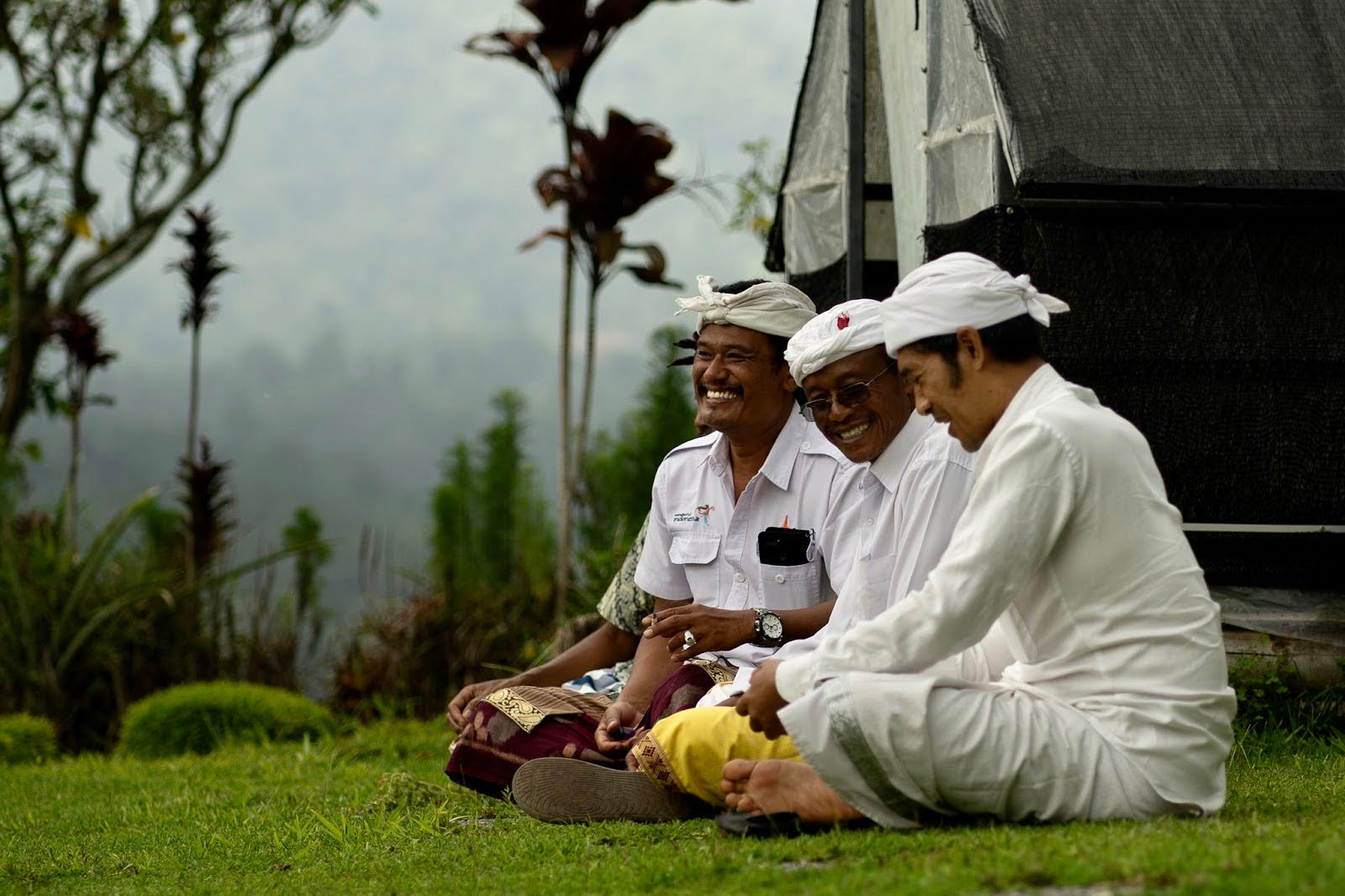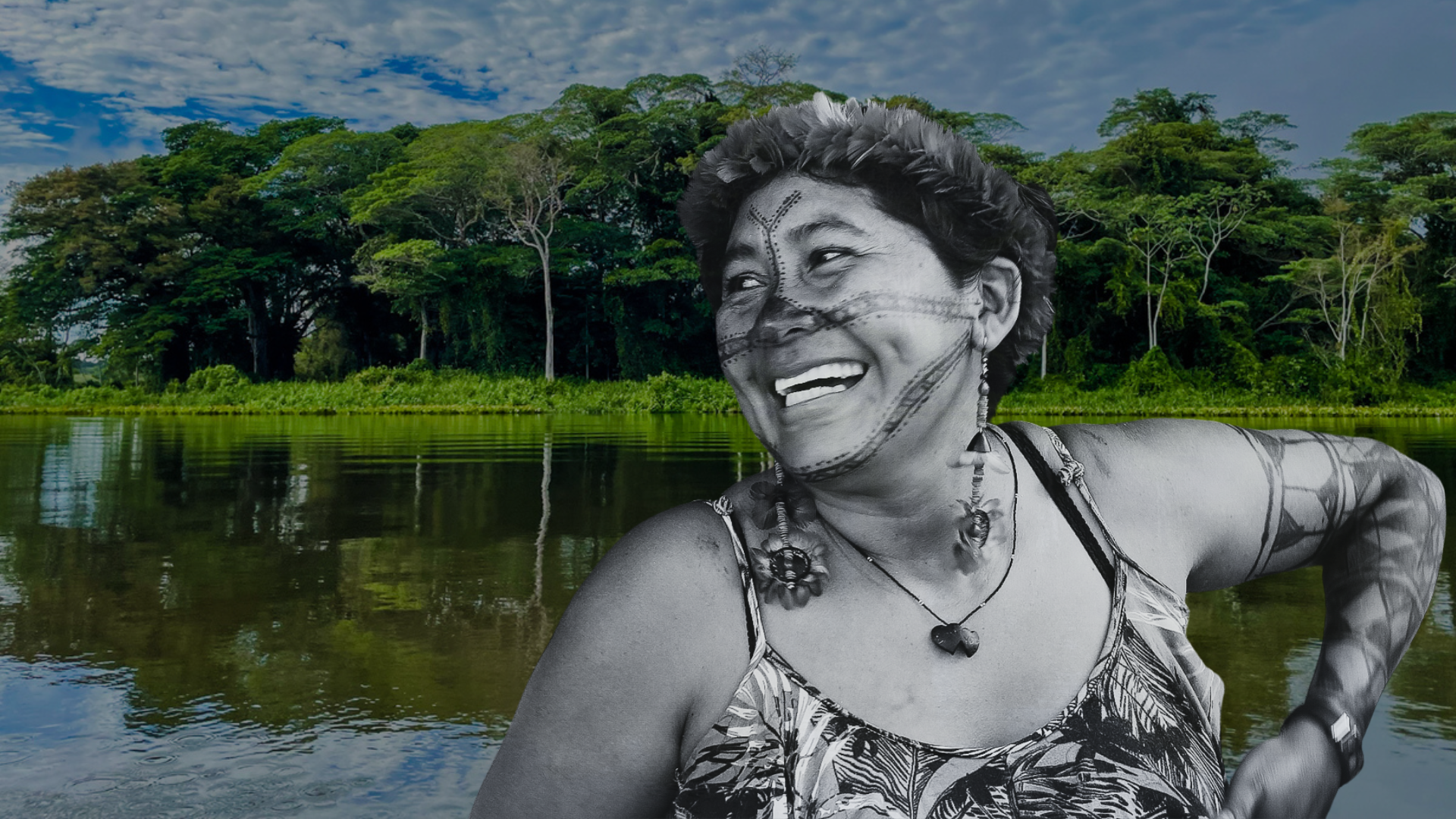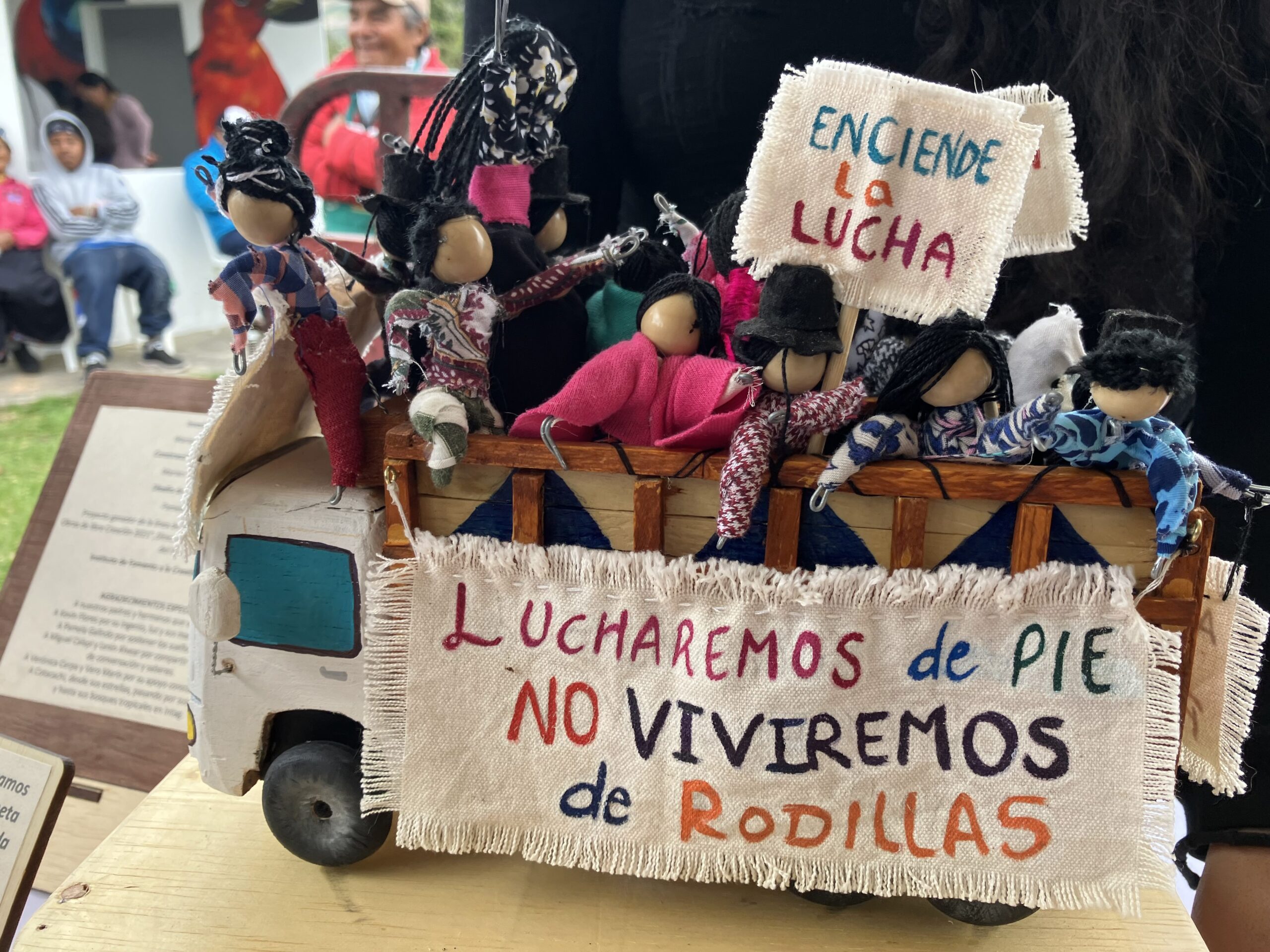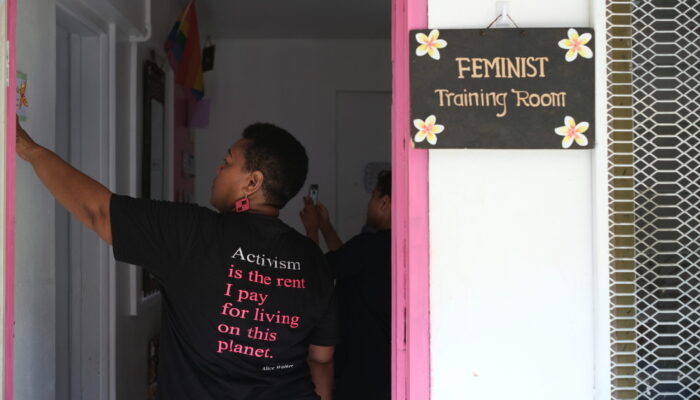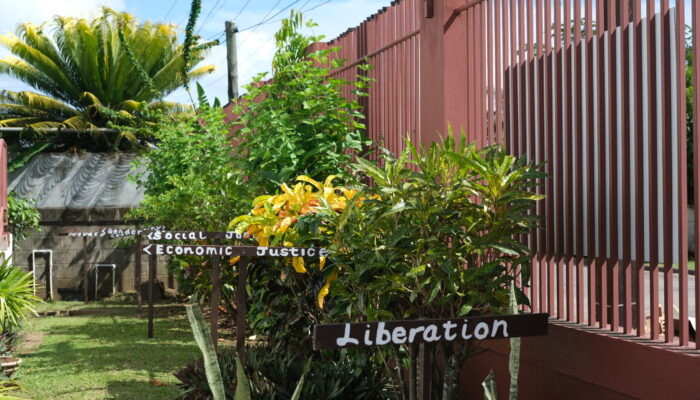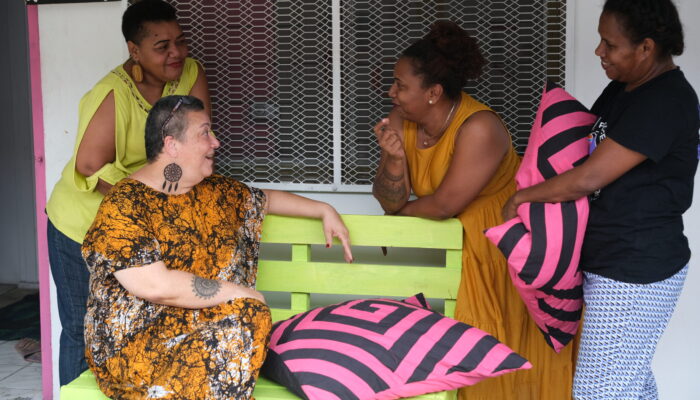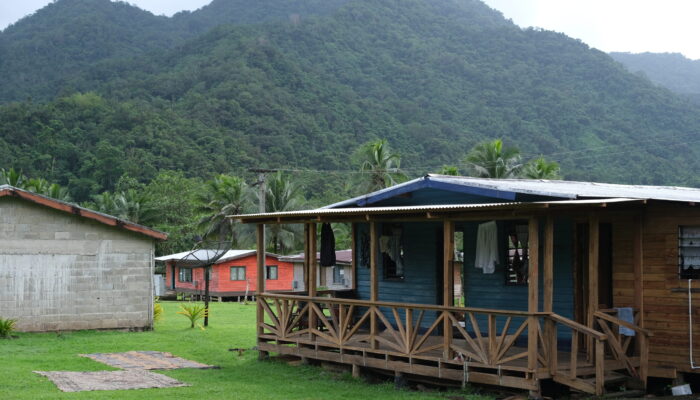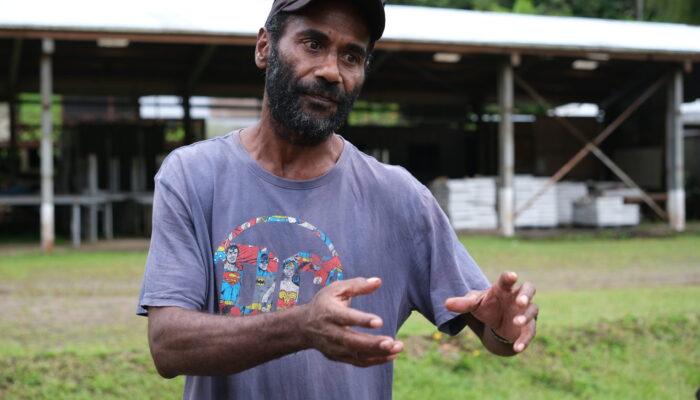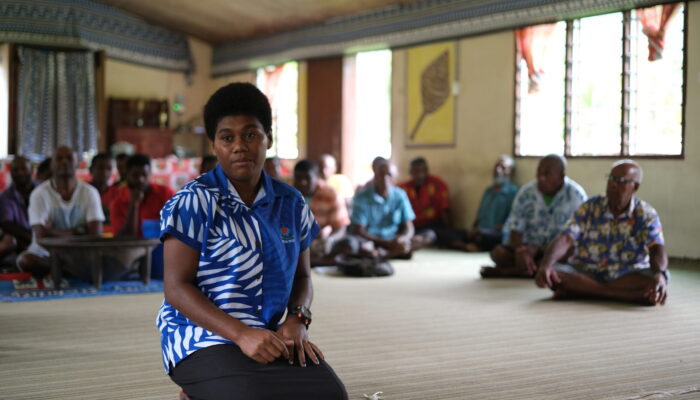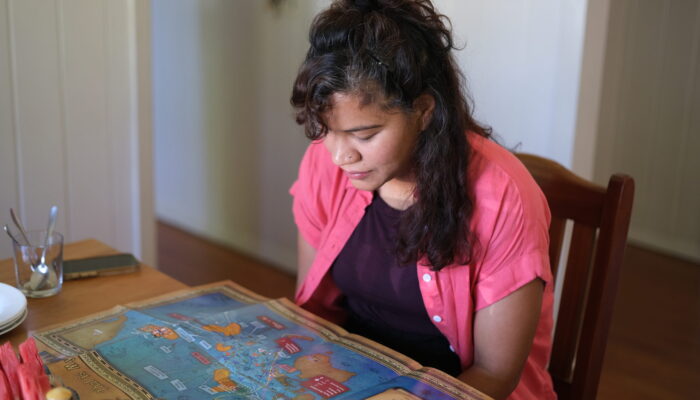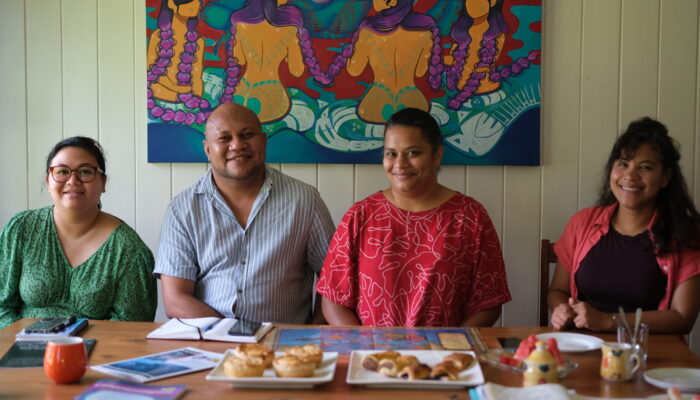Witnessing Pacific Power

From left to right: Shirley Tagi, Viva Tarawaqa, and Noelene Nabulivou.
by Cindy del Rosario-Tapan, former Director of Communications
Bula. It is the Fijian word for “hello,” and a greeting that is used ubiquitously throughout the island. After nearly 20 hours of travel to arrive in this pristine South Pacific nation, the sound of this word and the tropical temperature signaled a constant warm welcome for our recent partner visit.
Led by our Asia and the Pacific Regional Director Ashlesha Khadse and Program Manager Rachel Arinii, we embarked on a 10-day journey to listen and learn about the work our Fijian partners are doing to engage, empower, and enable change within an all-too-often forgotten pocket of the world.
Diverse Voices and Action for Equality
Our first stop was in the Western city of Nadi, where we were nourished by the powerhouse women of Diverse Voices and Action for Equality. Touring their new ‘D-Hive,’ the feeling of collective love and care is impossible to miss. Their space provides holistic community support so women can search for work, borrow interview clothes, get childcare assistance, and learn more about feminist practices.
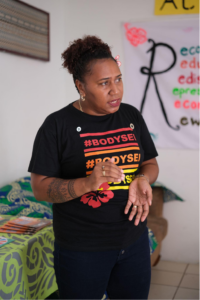
“This is a safe space to meet each other and be ourselves,” says DIVA Political Coordinator Viva Tatawaqa.
DIVA’s work for liberation, balance, and justice on all territories comes through the lens of local, queer, feminist, Pacific, and Indigenous communities. If a cyclone has damaged a community member’s home or disrupted their water supply, DIVA’s LGBT women will help with repairs and fight to ensure their voices are heard. If young women want to construct homes but are blocked by patriarchal clothing requirements, DIVA will negotiate with village elders to find a dignified compromise. If the health system fails (as it often did during COVID), DIVA will provide hygiene kits with basic medical supplies — including reusable menstrual pads.
They also advocate for policy change in key global spaces, fighting for Pacific women’s seat at the table, then doing the lengthy work to implement any promises into actions on the ground. Recognizing that women in Asia and the Pacific do 80% of unpaid care, they work to create basic rights to water, food, housing, and rest, particularly for women with disabilities, elderly women, widows, LGBTQ+ women, unemployed women, and single heads of household. As Executive Director Noelene Nabulivou said in describing their work, “Everything we do is a political act.”
Social Education Empowerment Programme
After two days in Nadi, we took a sprawling 4-hour journey on the Fijian coastline to the Southeastern city of Suva, Fiji’s capital. Here we met with the Social Education Empowerment Programme (SEEP), a movement support organization that works with Indigenous communities to resist extractive industries and develop young women leaders.
They were kind enough to take us to Namosi province, a community of 7,000+ people who have lived in these tropical highlands for 5 generations. In the midst of this lush, infinitesimally green landscape are several communities fighting back against extractive industries who have attempted to build three hydro dams and three open-cut mining pits and its tailing dam — the size of 150 rugby fields — right next to community member’s homes. It’s an increasingly common scenario in the Pacific, and the damage would undoubtedly lead to the displacement of homes, lives, and livelihoods — as well as wreak devastating ecological and environmental damage.
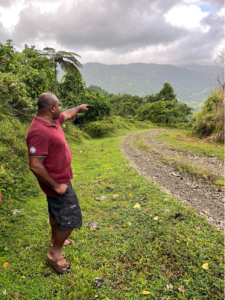
Sipiriano Nariva from LAMA, a community-led organization supported by our movement partner SEEP, points to the proposed location of the mining pits.
Led by The Landowners Committee “Lomani Au Maroroi Au (LAMA), which translates to “Our land is our heart,” the communities have successfully stalled the proposals thus far — but they know the battle is far from over.
In addition to spreading awareness about the fight against multinational corporations, SEEP is also working to empower young women through its frontline monitors program. They train girls aged 13-27 to collect biodiversity samples for nine communities in two districts. The program’s goal is twofold: first, to activate, engage, and train young women to enable equality for future generations, and second, to build capacity through citizen science with the goal of having their findings reach local, regional, and national governments.
LAMA representative Sipiriano Nariva recognizes the need to deploy all tactics to reclaim the Namosi people’s land and freedom. “We are fighting for the truth, and we are going to fight tooth and nail,” Nariva said. “We will fight to our last breath to ensure that the environment, the current and future generation are protected.”
Pacific Network on Globalization
“Everyone wants a piece of the Pacific,” said Joey Tau, Deputy Coordinator of Pacific Network on Globalization (PANG). A Thousand Currents partner since 2018, PANG is an advocacy organization that works to mobilize communities for Pacific sovereignty. On our third and final partner visit, PANG shared their multifaceted work with us.
It has been almost 30 years since the last French nuclear test was conducted in what is now known as French Polynesia. Other parts of the Pacific, including the Marshall Islands and Kiribati, have also been impacted by nuclear testing respectively by the United States and United Kingdom. But PANG knows firsthand that Pacific peoples are still grappling with the consequences of that colonial legacy. Case in point: the proposal to dispose of nuclear waste from the Fukushima plant in Japan. PANG and its Pacific partners are fighting for a nuclear-free and independent zone in the Pacific, and calling for a global moratorium to ban deep sea mining in all oceans.
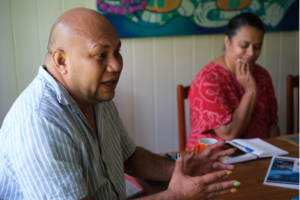
“Whilst we call for redress of colonial legacy constructs and issues in the Pacific, we are faced with new waves of colonization, such as deep sea mining and nuclear impacts,” said Joey Tau, (pictured above left), Deputy Coordinator at PANG.
Their work sees little difference between nuclear waste and deep sea mineral mining in the Pacific Ocean because both are extractive, profit-driven, and pose long-lasting consequences. PANG works to build community resilience, fight for remediation and compensation when communities are impacted, and enable Pacific people’s right to self-determination.
“Indigenous people’s knowledge and practices are known systems, and the oldest form of ocean conservation and governance,” said Tau. “Our Indigenous science is legitimate too—and deserves equal recognition in today’s policy spaces.”
On our final day, we looked up into the soaring palm trees, heard the colorful birds chirping, and felt a tremendous sense of gratitude. No matter the setting or the circumstances, pockets of Pacific power are aplenty in Fiji. Seeing our partners’ work firsthand was an inspiring experience, and a reminder that regardless of boundaries or borders, all of us need to change the system, together. Vinaka Vakalevu Fiji.
Learn more in our latest photo essay on the Namosi community, and stay tuned for our photos essay on thire frontline monitors program, and much more from the Pacific.
Related Stories
